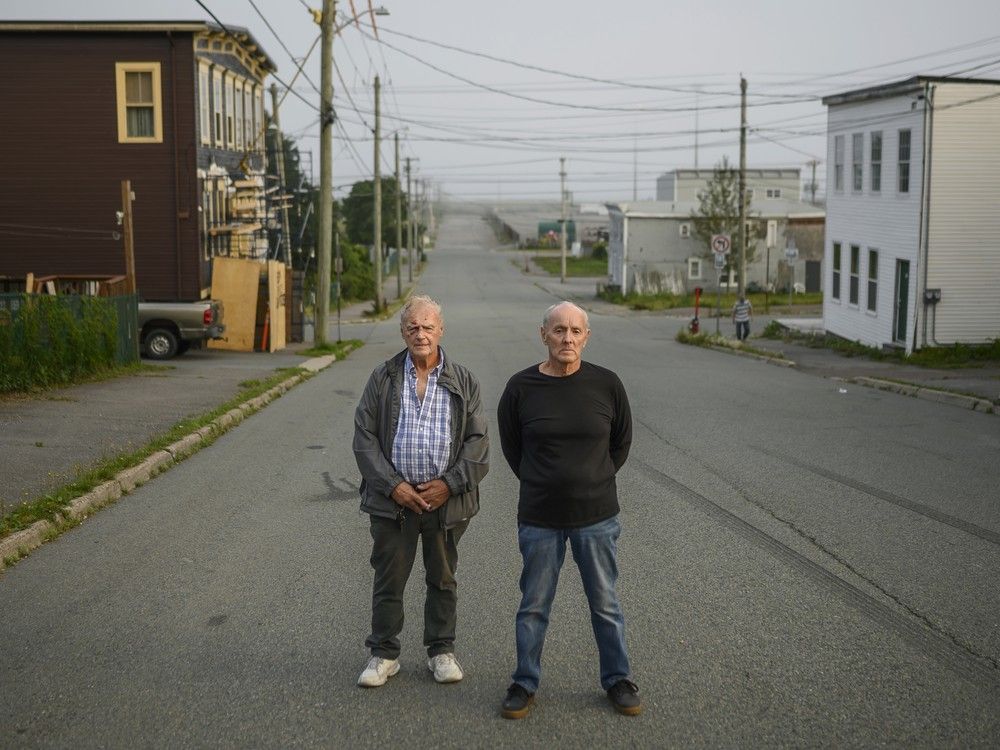Health
Justice Delayed: Exoneration of Robert Mailman and Walter Gillespie

On January 4, 2024, the long fight for justice came to fruition when Robert Mailman and Walter Gillespie were exonerated of the 1983 murder of George Leeman. The decision marked the end of a 40-year ordeal for the two men, who had been wrongfully convicted and sentenced to life in prison. Their acquittal was facilitated by extensive investigations, particularly by Innocence Canada, which highlighted significant flaws in the original investigation and prosecution.
The case began on November 30, 1983, when Leeman’s charred body was discovered in Rockwood Park, Saint John, New Brunswick. Six months later, Mailman and Gillespie were convicted of second-degree murder based primarily on the testimonies of two unreliable witnesses. According to reports, these witnesses had been incentivized by police for their cooperation and later admitted to lying under pressure.
Gary Dimmock, a journalist who has followed the case since 1996, played a crucial role in uncovering the details that led to the men’s eventual exoneration. He noted that the testimonies used to convict Mailman and Gillespie were riddled with inconsistencies and lacked corroborating physical evidence. The original police investigation was characterized by a narrow focus on the two men, driven in part by Mailman’s notorious past, which led to what has been described as “tunnel vision.”
The Long Road to Exoneration
Mailman, now 76 years old and suffering from terminal cancer, expressed a mix of relief and exhaustion as he awaited the hearing on January 4. He and Gillespie had endured years of fighting wrongful convictions, with Mailman serving 18 years and Gillespie 21 years in Dorchester Penitentiary. Their fight for justice was fueled by the unwavering support of family and advocates who believed in their innocence.
In December 2019, Jerome Kennedy, a lawyer with Innocence Canada, submitted a detailed application to the federal justice minister, which included evidence of police misconduct and the failure to disclose crucial information that would have benefited the defense. This application ultimately led to the order for a new trial.
At the hearing, Chief Justice Tracey DeWare acted swiftly, asking prosecutors to present their case. When the Crown stated they had no evidence to present, the judge acquitted the men of murder. In her written decision, DeWare expressed profound regret for the failures of the legal system, acknowledging the impact of these mistakes on Mailman and Gillespie’s lives.
A Life Lost and Regained
The aftermath of the trial has left both men grappling with the consequences of their wrongful convictions. Mailman has spent his days in relative seclusion, reflecting on a life interrupted. He is particularly grateful to Innocence Canada and the many supporters who fought alongside him throughout the years. “The system owes me my life back,” he remarked, underscoring the emotional toll of his experience.
Gillespie, who was 80 at the time of his exoneration, faced the challenge of building a new life after decades of imprisonment. He expressed feelings of loneliness and uncertainty, noting that he felt like a stranger in his own community. Tragically, Gillespie passed away just a few months later on April 19, 2024, before he could receive any financial compensation for his wrongful conviction.
The case of Mailman and Gillespie highlights systemic issues within the justice system, including reliance on questionable witness testimony and a lack of oversight in police investigations. As they finally reclaim their freedom, there is hope that their story will lead to reforms that prevent such miscarriages of justice in the future.
-

 Politics4 weeks ago
Politics4 weeks agoSecwepemc First Nation Seeks Aboriginal Title Over Kamloops Area
-

 World5 months ago
World5 months agoScientists Unearth Ancient Antarctic Ice to Unlock Climate Secrets
-

 Entertainment5 months ago
Entertainment5 months agoTrump and McCormick to Announce $70 Billion Energy Investments
-

 Science5 months ago
Science5 months agoFour Astronauts Return to Earth After International Space Station Mission
-

 Lifestyle5 months ago
Lifestyle5 months agoTransLink Launches Food Truck Program to Boost Revenue in Vancouver
-

 Technology3 months ago
Technology3 months agoApple Notes Enhances Functionality with Markdown Support in macOS 26
-

 Lifestyle3 months ago
Lifestyle3 months agoManitoba’s Burger Champion Shines Again Amid Dining Innovations
-

 Top Stories2 months ago
Top Stories2 months agoUrgent Update: Fatal Crash on Highway 99 Claims Life of Pitt Meadows Man
-

 Politics4 months ago
Politics4 months agoUkrainian Tennis Star Elina Svitolina Faces Death Threats Online
-

 Sports5 months ago
Sports5 months agoSearch Underway for Missing Hunter Amid Hokkaido Bear Emergency
-

 Politics5 months ago
Politics5 months agoCarney Engages First Nations Leaders at Development Law Summit
-

 Technology5 months ago
Technology5 months agoFrosthaven Launches Early Access on July 31, 2025





















